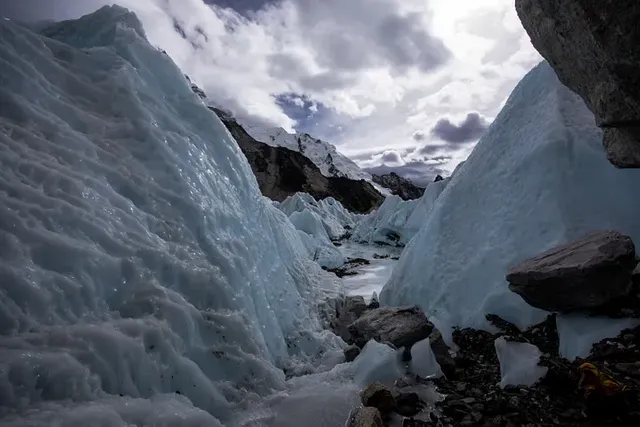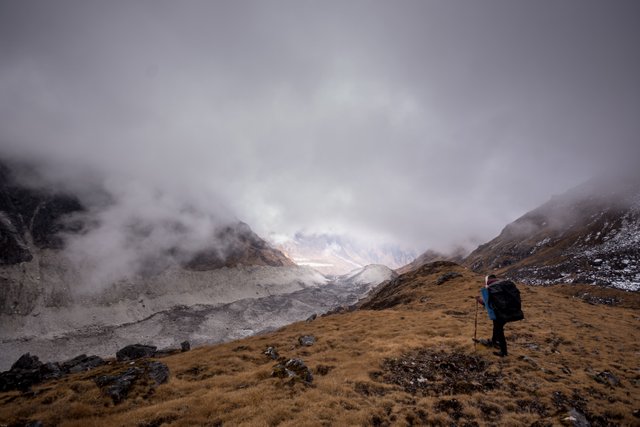Particularly sensitive to climate change in the Himalayan region.
As of my last update in January 2020, the EBC (Everest Base Camp) glacier, like many other glaciers worldwide, was experiencing substantial melting due to climate change. The EBC glacier, situated in Everest, is notably affected by rising temperatures, causing significant alterations in its structure, volume, and dynamics.
The Himalayan region, including Mount Everest and its surrounding glaciers, is particularly sensitive to climate change. Scientists have observed accelerated melting of glaciers in this area, and the EBC glacier is no exception. Various factors contribute to this phenomenon, primarily driven by global warming resulting from human activities like burning fossil fuels, deforestation, and other greenhouse gas emissions.
The melting of the EBC glacier has multifaceted implications, not only for the local environment but also for communities downstream that rely on glacial meltwater for their water supply, agriculture, and livelihoods. Here are some details explaining the impacts and causes of the EBC glacier melting:
Climate Change Impact: Rising temperatures in the Everest region have caused the EBC glacier to retreat at an alarming rate. The once-stable ice formations are now receding, leading to reduced glacier mass and volume. This has resulted in increased glacial meltwater, contributing to rising water levels in rivers and lakes.

Water Resources: The EBC glacier’s melting directly affects water availability downstream. Communities living in the region rely on glacial meltwater as a crucial source of freshwater. The altered flow patterns and reduced water reserves can impact agriculture, hydropower generation, and the overall ecosystem.
Glacial Lakes and Hazards: Rapid melting can lead to the formation and expansion of glacial lakes. These lakes pose a significant risk of outburst floods known as glacial lake outburst floods (GLOFs). The increased volume of water contained by these lakes raises the potential for catastrophic flooding downstream, endangering lives and infrastructure.
Ecosystem Changes: The melting of the EBC glacier affects the fragile mountain ecosystem. It can lead to changes in vegetation patterns, alter habitats for various species, and disrupt the delicate balance of the ecosystem. Additionally, the release of sediments and nutrients from melting glaciers can impact downstream ecosystems.
Mountaineering and Tourism: The retreat of the EBC glacier and changes in the landscape can have implications for mountaineering activities and tourism. Routes used by climbers and trekkers may become more hazardous due to unstable ice and rock formations caused by melting glaciers.
Efforts to mitigate the melting of the EBC glacier and other Himalayan glaciers involve international collaboration, scientific research, and climate change mitigation strategies. These efforts include raising awareness, implementing sustainable practices, reducing carbon emissions, and adapting to the changing environment.

Continued monitoring and research are essential to understand the evolving dynamics of the EBC glacier and develop effective strategies to address the far-reaching impacts of its melting on both local and global scales. Addressing climate change remains crucial to preserving these natural wonders and ensuring the well-being of communities dependent on them.